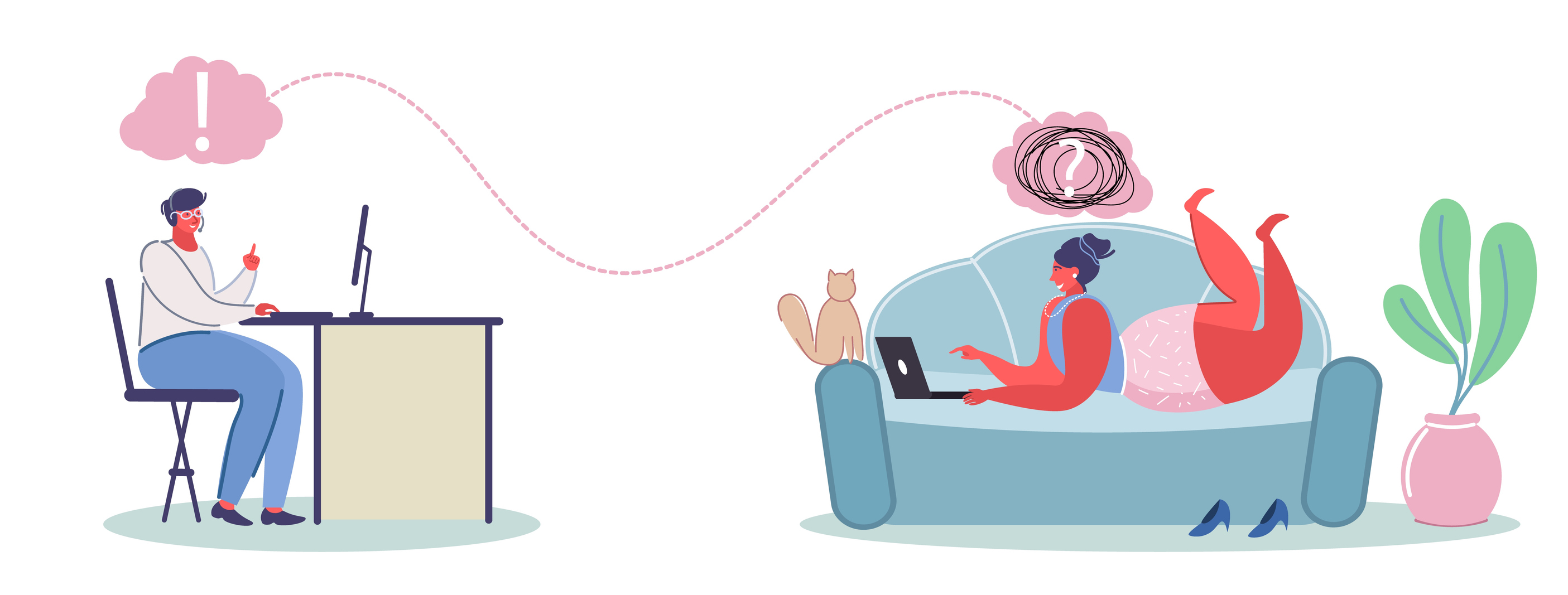The coronavirus pandemic has taken a serious toll on the mental health of many Americans. A recent poll by Kaiser Family Foundation found that approximately 45% of adults in the United States are experiencing mental health challenges that stem from virus-related worry and stress.
Job loss, isolation, health concerns and uncertainty about the future have all led to anxiety, depression and other mental health disorders. The good news is there are ways we can improve our mental health and enjoy a higher quality of life during these unprecedented times.
Here’s why you should prioritize your mental health
While mental health is always important, it’s particularly crucial during the coronavirus era. Here are some reasons you should make it a top priority.
Stress and uncertainty
As humans, we crave security. We want to feel safe and have complete control of our lives. Unfortunately, however, the coronavirus pandemic has taken that away from many of us and led to extreme stress and anxiety.
With the pandemic in full swing, you may worry about what will happen to your job, finances, relationships and health today, tomorrow and months from now. This can cause you to constantly think of worst-case scenarios and make it difficult to live in the moment.
Loneliness
Stay at home orders, social distancing and feelings of loneliness go hand-in-hand. According to a recent study, 47% of Americans said the coronavirus isolation has caused them to feel more lonely than usual. Even if you live with a partner, children or a roommate, you can still feel alone.
Here’s why: Social gatherings and communication are important for humans who wish to live an interesting and enjoyable life. Therefore, limited or no contact with friends, family members, co-workers and acquaintances can evoke loneliness, especially if you’re used to a lifestyle where you’re always out and about with others.
Disruption of routines
The pandemic has no doubt changed the way many of us live our day-to-day lives. Maybe you’re a parent who has to homeschool and work a full-time job at the same time. Or perhaps you now work from home or no longer work at all because of a layoff, furlough or termination.
A disruption in your typical routine may lead to stress and worry because you’re forced to suddenly change the places you go to, the people you see and the things you do.
6 ways to prioritize your mental health
If you’re concerned about your mental health, these tips can help you prioritize it.
- Talk to someone
“Even though the term ‘social distancing’ is being used, it should be called ‘physical distancing,’” explained Dr. Mary Alvord, a psychologist with more than 40 years of experience and fellow of the American Psychological Association (APA).
Alvord encourages everyone to continue to socialize and talk to others because we need social connections to thrive. Dedicate some time each day to FaceTime with a friend, have a Zoom call with your parents or participate in a virtual therapy session with a mental health professional.
Even if you have minor symptoms of anxiety or depression, virtual therapy can prevent them from becoming too serious. You’ll get to speak to a mental health professional who will provide you with some concrete steps to improve your situation.
- Get up and moving
You don’t have to run a mile or engage in a vigorous HIIT workout every day to boost your mood and energy levels. Go for a walk around your neighborhood or hike a nearby trail. If you like to dance, don’t be afraid to turn up some music and groove.
Even several minutes of yoga poses in your living room will do. Any type of movement benefits your physical and mental well-being.
- Practice visualization
Since visualization can help you relax, combat negative thoughts and reduce anxiety, Alvord highly recommends it. Close your eyes and picture a place you find comforting or peaceful. This may be a beach, garden or meadow.
Then, think about the colors, sounds, smells, tastes and temperature associated with this place. The more you practice visualization, the calmer you’re likely to feel during the crisis and beyond.
- Focus on gratitude
It’s all too easy to think and talk about the negative. Since this will do nothing but worsen your mental health, do the opposite and be grateful. Remind yourself of what is going well or even just OK in your life.
Do you still have a job? Are you healthy? Do you have a place to live? Gratitude can lead to positive thinking and prevent us from getting bogged down by all the wrong in the world.
- Stick to a routine
While it may be tempting to get up and go with the flow, a daily routine is essential. It’ll improve your nutrition, sleep and productivity. “A routine (even if it’s drastically different from the one you’re used to), can allow you to plug ‘knowns’ into the constant ‘unknowns’ the pandemic has created,” said Alvord.
- Be proactive
There are a lot of things that are out of your control, so it’s a good idea to be proactive when possible. Go into problem-solving mode and figure out how you can resolve or improve any issue you’re currently facing.
For example, if you’ve lost your job, you may want to update your resume, connect with others in your industry on LinkedIn and file for unemployment. If you’re feeling lonely, schedule a daily conversation with your friends. A proactive mindset can do wonders for your mental well-being.


